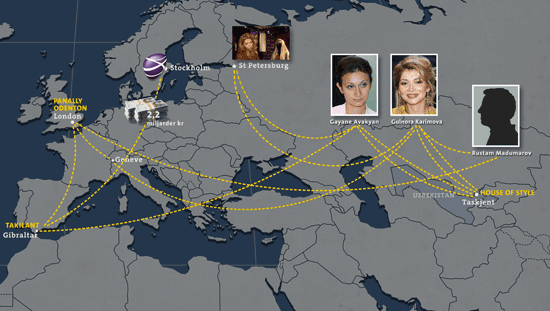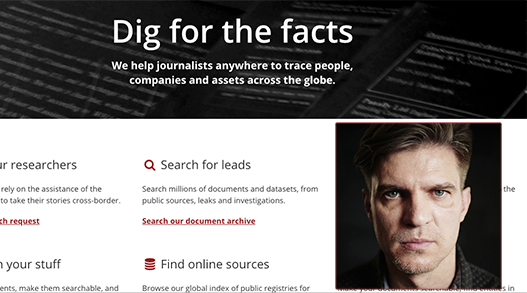Fredrik Laurin is one of Sweden’s highest-awarded investigative journalists, alongside his reporting partners Sven Bergman and Joachim Dyfvermark. The team recently exposed how Swedish/Finnish telco TeliaSonera cooperated with dictators in countries like Uzbekistan and Belarus, allowing them to listen to private calls.
He is also the latest in ICIJ’s ‘Secrets of the Masters’ series with the world’s top investigative reporters, and he generously shares advice about investigative reporting techniques and the value of making connections.
Laurin talks about his motivations for getting into journalism:
We lived in the shadow of … the dictatorships in Spain, Greece, and Portugal and in the Eastern bloc countries.
I think that growing up during that part of our history with Swedish ideals of peace and solidarity where even our PM openly protested the US policy in Vietnam has formed my values.
I know from experience, my own and others, that power corrupts, but I also know that you can protest that, and that resistance in the end can have effect. Journalism has always felt like one of the tools that can make that happen.
On the key elements required of his stories:
We usually start by a helicopter view of the problem at hand. What is the problem? Why do we care?
Then it’s the smoking gun. Where should we be looking and what are the possibilities of actually unearthing it?
Finally: people affected by the issue you are reporting on, and their stories to make the report come alive.
We almost never do projects that do not have a minimum level –- meaning that we at the start of the project already know that the story is good enough with what we know already so that it can be run. And then we have the maximum level which we never know if we are going to reach, but most certainly is what we are aiming for.
On the most important lessons he has learned over the years:
Trust your gut feeling. If you think something is odd, or shouldn’t be the way it is, it probably shouldn’t.
Love all. Connect with everyone, even the devil. Trust a few, choose your partners carefully.
And finally: paddle your own canoe. In the end you always have to do the job yourself, whether it’s mining the database all night or do the final confrontation interview with the CEO. You can’t leave that to someone else. And never give up.
On the biggest threat to investigative reporting:
The crumbling finance model of classic journalism. There is no substitute in sight for the capitalists that used to make the profits from the printing presses and shared the loot to some small extent with the journalists in exchange for filling the space between the ads.
In the meantime journalists must get money someplace else and keep doing the job. There is nothing wrong with the product: good reporting will always have a value to the reader. It’s going to be a rough ride, but we will prevail. If money was your object when you went into journalism you are in the wrong industry in the first place.
And his tips for young, emerging, investigative reporters:
Go for it. News is what someone wants to hide, the rest is advertising. If you remember that you will always have someone that wants to read your story.



